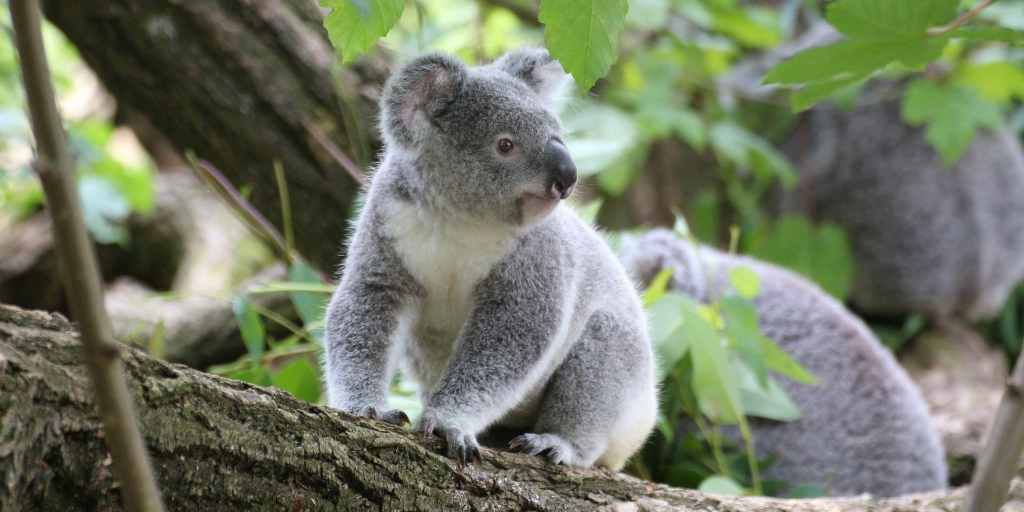People and animals alike are suffering from the fires in Australia
Hi there, thanks for joining us for episode 226 of Plain English. I’m Jeff; JR is the producer; and you can find the transcript, video lesson, flash cards, and translations for this episode at PlainEnglish.com/226.
Coming up today, Australia is one of the world’s most biodiverse countries, and its animals are suffering in the intense wildfires that have been sweeping the outback. The expression today is “in the face of” and we have a quote of the week.
Quest to care for animals in Australia’s wildfire zone
Australia is suffering through its worst wildfire season in recent memory. The fires have burned 15 million acres, destroyed 2,000 homes, and killed 24 people.
But it’s not just the people who have been affected: it’s the animals, too, and that is one of the saddest parts of the crisis for this nature-loving country. Australia is one of the most biodiverse parts of the earth; it’s one of seventeen countries considered “megadiverse.” These seventeen countries have 10 percent of the earth’s land area, but 70 percent of the world’s biological diversity. Researchers believe over 600,000 species exist in Australia—many of them are exclusive to that country; some are so rare they don’t have names and haven’t been studied.
For all its diversity, though, two animals are emblematic of Australia: the kangaroo and the koala bear. Ecologists say that there were about 50,000 koalas before the fires broke out. The animals are fuzzy, cute, and peaceful; they don’t run fast and they are defenseless in the face of natural disasters like wildfires.
Volunteers are working to find injured koalas and get them help. Often, a koala that has been injured can be treated at one of Australia’s specialty veterinarian clinics, and they can be returned to the wild. Unfortunately, the stories don’t always have a happy ending. In one well-publicized case, a woman ran into a fire to rescue a koala bear. She doused the flames, protected the bear with her shirt, and took it to an animal hospital. But the koala would not have recovered from its burns and had to be euthanized.
It’s impossible to know how much damage the fires will do to the koala population; there’s a lot of speculation, a lot of numbers being thrown around, but it’s just a guessing game at this point.
Kangaroos are more mobile, but they can’t always escape the blaze. In one case, hundreds of them took refuge on a golf course, as the flames crept closer and closer in the surrounding woods. Some survived, but many were burned so badly that they had to be euthanized, too. Veterinarians have to carry out this heartbreaking work of determining which kangaroos can be saved; they have to euthanize the ones that can’t. It’s heartbreaking work for people who dedicate their careers to caring for animals, but they know it’s the right choice because the animals are suffering and would soon die anyway.
There are a lot of headlines about the extent of the damage, how many animals and species have been affected, things like that. It’s too early to know exactly how this will affect the biodiversity of Australia. This year’s fires may push some species into terminal decline, which is to say that it may not kill off an entire species, but it may weaken it to the point where the species cannot recover and will eventually die off.
It is sad to see animals suffer. But it’s also worth keeping in mind that nature is resilient. As cruel as these wildfires seem, fires are endemic to Australia. Eucalypt trees, in which the koalas live, bounce back quickly after fires like this. Australian gum trees have evolved to thrive after a fire. The ash will fertilize the ground and provide the nutrients that the forests need to recover. Surviving animals will return to a healthy, growing forest and in most cases rebuild their populations.
Animals in the wild aren’t the only ones affected. Livestock, too, have suffered; if you have a herd of sheep, it’s not easy to keep them away from the fires. On one farm, a heroic farm worker named Patsy helped herd the family farm’s 900 sheep away from the fires and into an enclosed area, away from danger, while other members of her family fought the fires with a tractor and a hose.
The stress of the fires and the confusion can take a toll on the animals on a farm. Patsy would know. She is an Australian sheepdog herself.
Patsy’s owner described her as “cool as a cucumber” as she was herding the sheep. That’s a good phrase to know, “cool as a cucumber.” It means you keep your head when you’re under stress; you don’t panic.
If you’re not yet part of our e-mail list, then I would encourage you to join today. Members of our email community get so much more than just the program—and it’s totally free. Every Monday and Thursday, we’ll teach you one additional word or phrase that we used during the program, and that’s usually a more informal word or phrase. And we’ll also send you links to English-language articles about the main topic, so you can read more about any topics that you especially like. All that can be yours for free by signing up at PlainEnglish.com/mail.
Great stories make learning English fun

